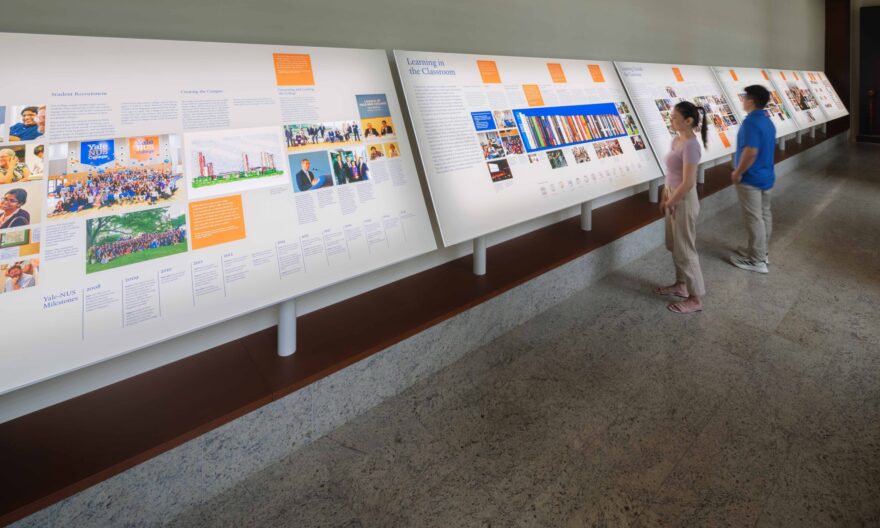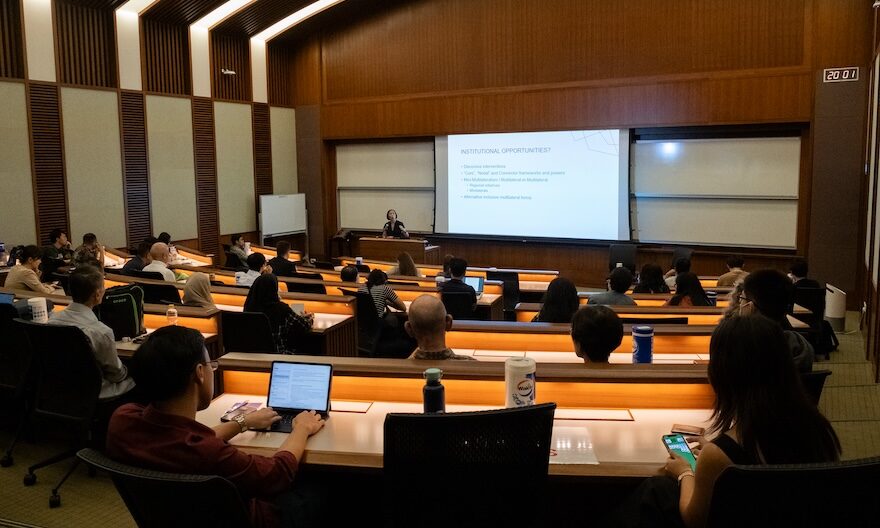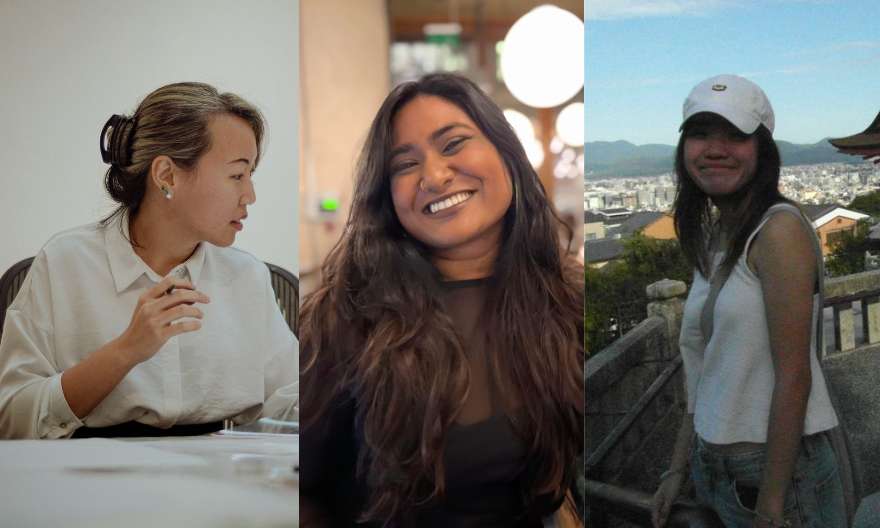Yale-NUS College welcomes Dr Radha Kumar for a lecture on “How Democracies Renew?”
Dr Kumar discusses the current trends and distinctive patterns in the democratisation process
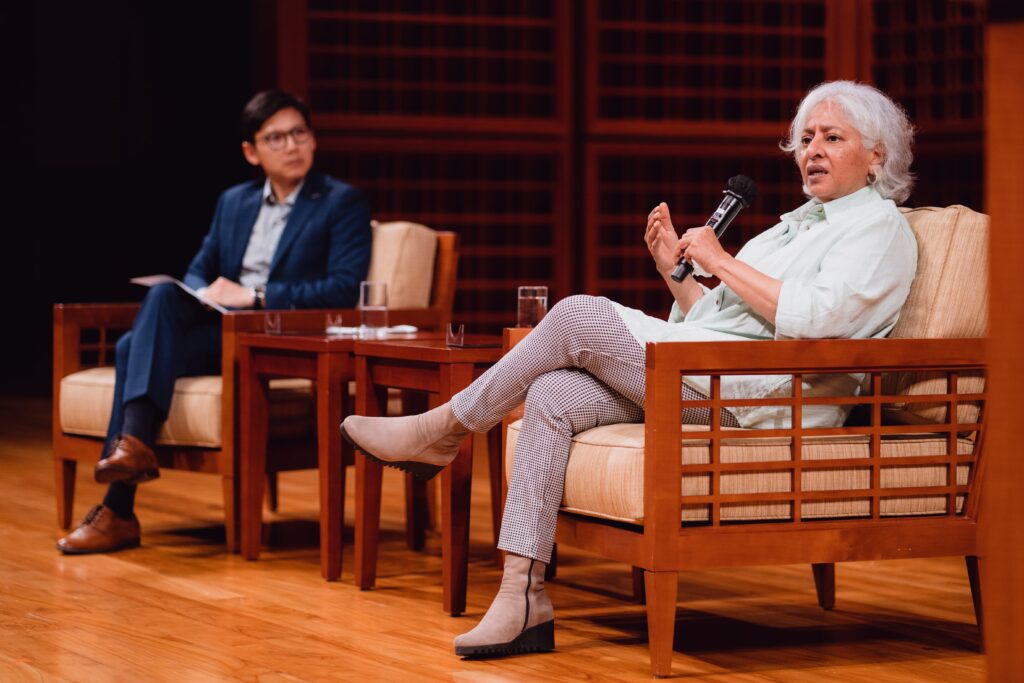
On 2 February 2023, Yale-NUS College welcomed Dr Radha Kumar, a renowned expert in conflict resolution and democracy, to deliver a lecture on the topic “How Democracies Renew”. In her talk, Dr Kumar explored the internal and external factors that support democratisation, as well as the global security implications of geopolitical divisions between autocracies and democracies. Drawing upon vivid illustrations from the Indian subcontinent and Southeast Asia, Dr Kumar illuminated the current trends and distinctive patterns she has identified in the democratisation process.
Following an introduction by Associate Professor of Social Sciences (Political Science) Chin-Hao Huang, Dr Kumar delved into the major methods and approaches through which democracies can be renewed. In recent years, democratic renewal is bought about by coalition building and the usage of existing institutions such as the courts, media, and industry. A third potential method of renewal is the moderation of extremist parties from within, but that has yet to be observed.
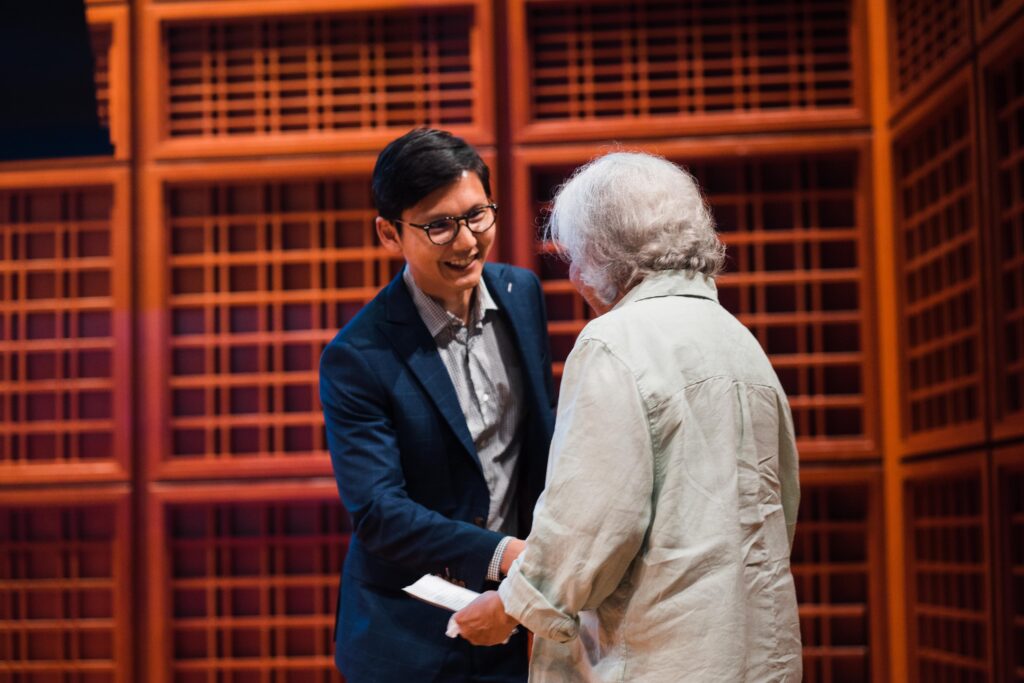
Deriving from the political situation and the historical context of her home country, India, Dr Kumar highlighted the role of civil societies in democratic renewal.
“What does give me hope for India, is that we see a large coalition-building exercise in civil society. […] This hope might seem unrealistic, however, historically, civil society coalition building in India has twice toppled ruling parties.”
Furthermore, she drew attention to the well-established fact that for democratic renewal to take place, democracies need to support each other:
“Democracies rarely renew in isolation. […] But the support of democracies for each other appears to have weakened considerably over the last decade.”
In the closing remarks of her speech, Dr Kumar emphasised the importance of continuously advocating for the protection and preservation of the fundamental right to freedom of expression:
“Freedom of expression is something you cannot ever tolerate any decay in because without that no other democratic institution will ever be possible.”
Dr Kumar’s visit was a valuable opportunity for Yale-NUS College students, faculty, and guests to engage in a thought-provoking discussion on the current state of democracy and its future. The question-and-answer session following the lecture allowed participants to raise questions and topics of their interest, including the role of the COVID-19 pandemic in democratic renewal, migration, and the role of women in peace-building processes.
On the concept underpinning the liberal international order and the expectation that over time economic progress will bring about political openness, Dr Kumar cited the example of China and noted that historically, economic development did not necessarily lead to political freedoms or cultural freedoms.
Hanna Wdzięczak, a Yale-NUS College alumna (Class of 2021), posed a question about social media’s contributing to antidemocratic messaging and mobilisation. According to Dr Kumar, social media has exponentially increased tolerance for abusive politics. Civility, she claims, regardless of whether it is online or offline, is a learned trait. “A culture of civility is the only safeguard you can have,” she expressed and asserted that we should continue working towards civilising the online freedom of speech.
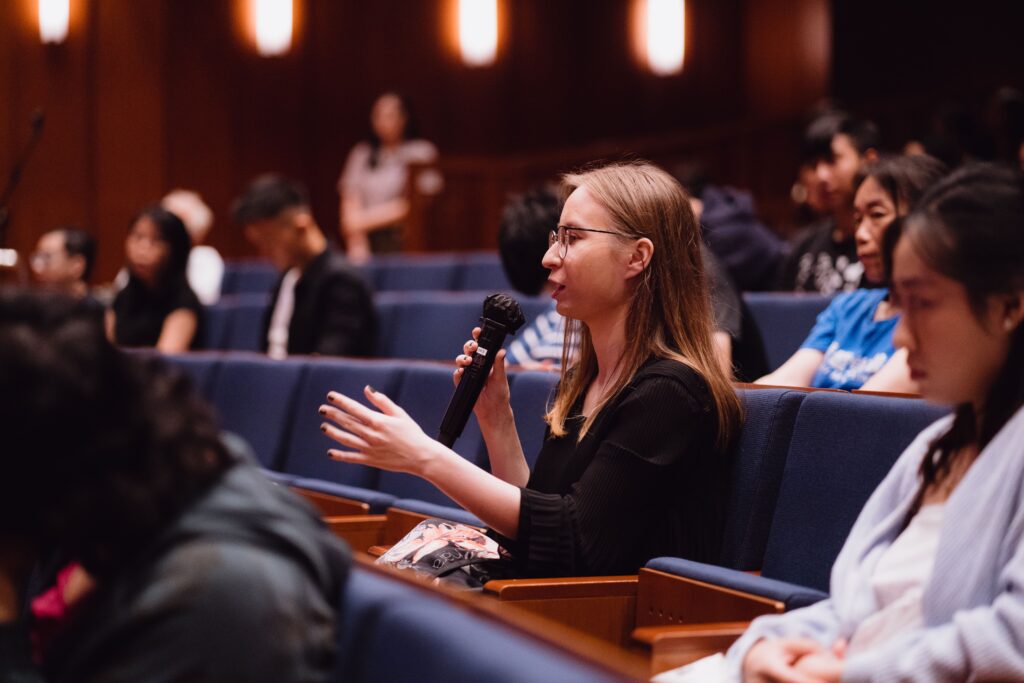
The lecture was well-received by the audience, who appreciated Dr Kumar’s insights and expertise on the subject. Kazu Nakamo (Class of 2025) found the talk inspiring.
“What I found interesting is the observation about the distinct approaches autocracies and democracies have towards states with similar institutional systems. Autocracies support each other very strongly, while democracies fail to do so to the same extent. Yet, I found the talk inspiring, in the way it emphasised the role of civil participation in moving democracies forward – citizens are always the agents that inspire change.”
The Yale-NUS Lecture on Global Affairs is sponsored by the late Professor Saw Swee Hock.

